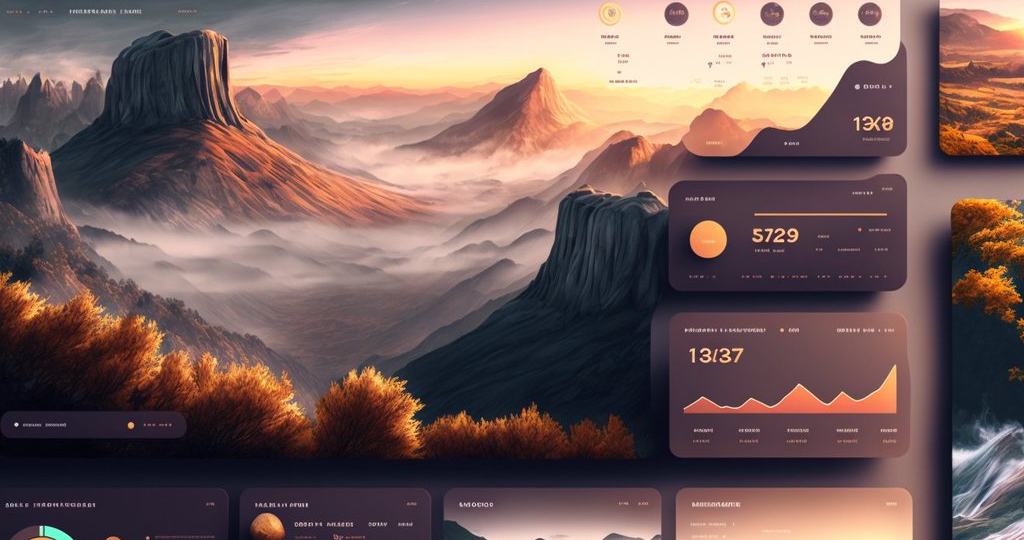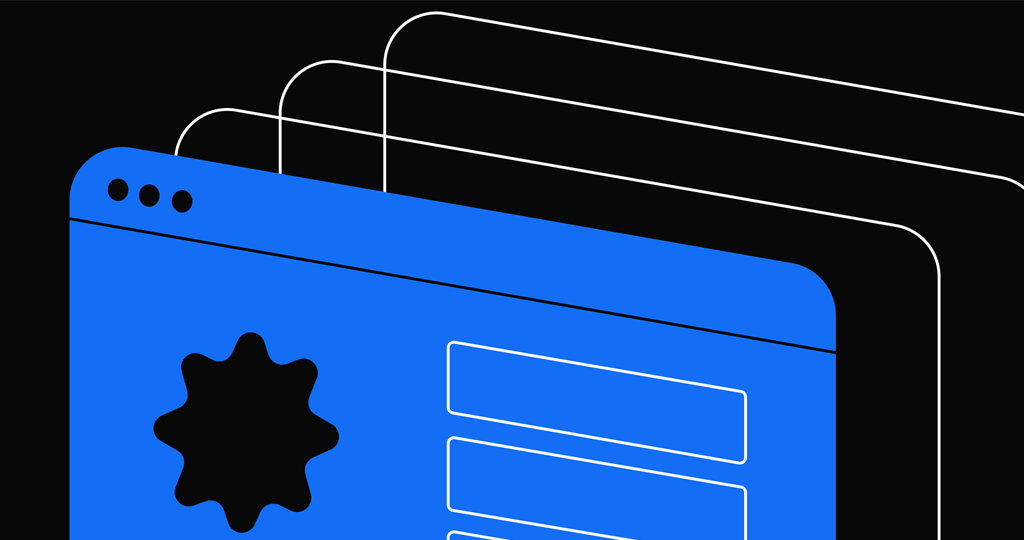In their blog "How is AI Transforming User Experience in Web Design?", Way2Smile Solutions, a web development company, delves into the impact of AI on modern web design. The blog examines how AI is helping designers create more intuitive, user-friendly interfaces that adapt to individual user needs.
Key Takeaways
Artificial Intelligence (AI) has transformed web design, making it more efficient and user-focused. It's not just about aesthetics but also improving usability and accessibility.
Businesses, including those seeking a Dubai web design company, are increasingly recognizing the importance of investing in User Experience (UX) Design. A well-designed website keeps users engaged and coming back for more.
AI empowers websites to offer personalized experiences to users based on their behavior and preferences. This personalization includes content recommendations, chatbots, and more, enhancing engagement and conversion rates.
AI web design tools like Adobe Sensei, Figma, and Canva are assisting designers in creating more intuitive and visually appealing websites. These tools streamline the design process, making it more user-centric.
While AI plays a crucial role in web design, it can't replace the creativity and intuition of human designers. UX design is an ongoing process that demands a balance between AI-generated website design and human expertise.
Technological methods continue to be improving, opening the door for fresh, fascinating discoveries. Among these revolutionary developments, artificial intelligence (AI) is one that has had a particularly profound impact across a wide range of businesses. This has a significant effect on web design. Website development and design used to involve a lot of human labor, such as creating a lot of code and properly testing it. However, the introduction of AI has significantly altered the situation. To help design websites that look amazing and function effectively for consumers, AI combines sophisticated math and data analysis.
Web designers and developers now have intriguing new possibilities thanks to this AI-powered change. They can now produce more engaging, dynamic, and individually tailored digital experiences. These are some of the top reasons to invest in User Experience (UX) Design, as suggested by an increasing number of companies, including those searching for a website design company in Dubai. In this article, we'll look at the importance of UX design and how AI is changing web design.
Why is User Experience important for Web Design?
User Experience, or UX, is like the secret ingredient in websites that draws users back time and time again. Imagine visiting a website and being able to navigate it easily and with the sense that it was designed just with you in mind. This is excellent UX! Consider the contrary, a slow, annoying, and confused website.
You'd probably leave straight away, don't you? UX is extremely important in this situation. Making your user's online experience enjoyable and effective is a key factor to your success. Websites with excellent UX design are simple to use, have beautiful visuals, and are straightforward to browse. It's comparable to the distinction between a friendly, knowledgeable guide and a perplexing maze. When websites nail UX, you're more likely to stay, explore, and come back, which is precisely why businesses invest in it.
How is AI improving User Experience (UX) on websites?
AI is revolutionizing web app development and user experience (UX) by improving different areas of interaction and customization, resulting in more fun and efficient online experiences for users. Here are some of the capabilities provided by AI to improve website user experience:
- Personalization: AI algorithms analyze user data such as browsing history, preferences, and demographics to deliver personalized content and product recommendations. This tailors the website experience to individual users, increasing engagement and conversion rates.
- Chatbots and Virtual Assistants: AI-powered chatbots provide instant responses to user queries, improving customer support and reducing response times. Virtual assistants like Siri or Google Assistant can be integrated to enhance voice search capabilities, making navigation easier and more intuitive.
- Content Recommendations: AI-driven content recommendation engines can optimize the user experience for your eCommerce website by suggesting articles, products, or services based on a user's interests. This keeps visitors engaged and encourages them to explore more of the website, ultimately contributing to a more satisfying and personalized online shopping experience.
- Predictive Analytics: AI can predict user behavior and preferences, helping websites anticipate user needs. For example, it can pre-load content or suggest actions based on previous interactions, making the user experience smoother.
- Visual and Voice Search: AI enables visual and voice search capabilities, allowing users to find products or information more intuitively. This is especially helpful for e-commerce websites, making product discovery easier.
- Security: AI algorithms can detect and prevent cyber threats, ensuring a safer user experience. This boosts user trust and confidence in the website, thereby boosting SEO.
- Accessibility: AI can enhance website accessibility by providing features like automatic closed captioning, screen reader compatibility, and voice commands, making the site more inclusive for all users.
- Content Generation: AI-generated content can assist in creating product descriptions, blog posts, and other materials, saving time and effort for website owners and maintaining a consistent tone and quality. By personalizing content, offering real-time support, optimizing designs, and strengthening security and accessibility, AI is greatly improving website UX and emphasizing the importance of brand identity in website design. These AI-driven advancements make the online environment more user-centric and engaging, ultimately benefiting both website owners and users.
AI tools for enhancing User Experience
Here are some of the AI tools that are widely used by web designers to enhance User Experience (UX) on websites:
- Adobe Sensei: Adobe Sensei is a fantastic design tool. It boasts the capabilities of AI and machine learning to produce highly intuitive and personalized user experiences. Designers can easily create user interfaces that speak to specific users, improving the effectiveness and engagement of the whole experience.
- Figma: Figma, a versatile cloud-based design tool, integrates AI to enhance the design process. With AI-driven features, it empowers designers to efficiently create user-friendly interfaces that cater to a broad range of needs. This results in more effective and user-centric designs.
- Sketch2Code: Sketch2Code is a user-friendly tool that streamlines the transformation of hand-drawn sketches into functional HTML prototypes. Its AI-powered capabilities ensure accuracy and speed, making the transition from concept to prototype a breeze for designers and developers alike.
- The Grid: The Grid, an innovative AI website builder, takes the hassle out of creating websites. It uses AI algorithms to automatically generate websites tailored to your design preferences and content. This not only simplifies the website creation process but also ensures a seamless and user-friendly end result.
- Canva: Canva stands out as a favorite design tool, offering an array of AI-driven features. These features make it easy for users to craft visually stunning designs with artistic flair. Canva's AI assistance ensures that even those without design experience can create impressive graphics and visuals.
Constraints of Using AI in Website UX Design
Artificial intelligence (AI) has made significant strides in recent years, but it still faces limitations in enhancing user experience (UX) design for websites. Here are some key points:
- Creativity Constraint: AI can replicate existing designs based on past data, but it struggles to come up with entirely fresh and innovative ideas.
- Understanding User Behavior: While AI can analyze user behavior patterns to some extent, it may not fully grasp the motivations and emotions of users, potentially leading to designs that lack emotional connection.
- Contextual Limitation: AI algorithms work based on the data they have, and they may not fully comprehend the broader context of a website's design needs.
- Balance between Looks and Functionality: AI may prioritize technical aspects of UI design over aesthetics and usability, potentially resulting in visually unappealing or user-unfriendly designs.
- Adaptability Challenge: AI relies on the data it has been trained on, so if user preferences or behaviors change significantly, it may struggle to adapt and provide relevant designs.
Future of AI in Web Design: Will AI replace UX Designers?
In the past, humans did all the creative work in website design, using their skills and experience to manually code and decide how websites should look and work. But now, technology is changing the way we design websites. Thanks to machine learning, designers can use AI to study how users behave on websites and suggest design changes based on what they learn. Machine learning also allows websites to create personalized experiences for visitors based on their actions, interests, and who they are. This means showing tailored content, suggestions, and prices. Designers can also use AI to make the design process more efficient.
However, even though AI has come a long way and can do many tasks, it's unlikely that it will replace human website UX designers soon. While AI can automate some parts of website design, such as selecting colors, analyzing user data, and proposing layouts, it can't replicate the human touch needed to create truly effective user experiences. Website UX design is an ongoing process that demands continuous improvement based on user feedback and changing trends. This harmonious fusion between human and AI consciousness is where the true magic of web design occurs, ensuring that websites resonate with users on a profound level.
Wrapping Up AI is an excellent technique for improving website user experiences through behavior analysis and customization. Furthermore, it aids in the improvement of content and design based on client feedback, resulting in increased happiness and loyalty. Nonetheless, the importance of human oversight and input must be recognized.
The final design decisions must be made by human designers, not AI, even though AI can offer insightful suggestions and recommendations based on data. A leading website design company in Dubai, Way2Smile Solutions excels in offering top-notch User Experience (UX) Design services. In order to develop amazing digital experiences, we understand how important it is to invest in UX design. We achieve the ideal mix between cutting-edge technology and the human touch by utilizing the power of AI.







